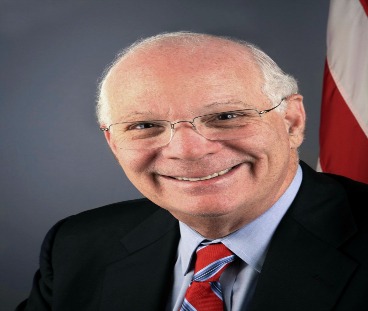Mr. Speaker, the tenth anniversary of the Dayton “General Framework Agreement for Peace in Bosnia and Herzegovina” is being commemorated here in Washington, in Dayton, Ohio, and in various European capitals.
Despite its shortcomings, the Dayton Agreement has, in fact, formed the basis for maintaining peace in Bosnia and Herzegovina and building a country devastated by a horrible conflict that included atrocities on a scale not seen in Europe since World War II. The very fact that discussions now center on moving beyond the confinement of Dayton’s provisions through constitutional reform is a confirmation of the agreement’s success. This success, as is widely known, did not come easily but required constant pressure from the international community.
One area of particular concern to me has been the necessity, recognized in Dayton, to cooperate fully with the International Criminal Tribunal for the former Yugoslavia, located in The Hague and commonly known as ICTY, in order to punish those responsible for war crimes, crimes against humanity and genocide. Officials in Republika Srpska, one of the two political entities into which Dayton divided Bosnia and Herzegovina, have been particularly recalcitrant in this regard, and most persons captured in this entity have been through the efforts of NATO-led peacekeeping units. Officials in Serbia have also resisted cooperating with The Hague in transferring indictees and providing access to evidence and witnesses.
Fortunately, a combination of outside pressure–including conditionality on assistance and on Euro-Atlantic and European integration–and increasing revelations of the true nature of the Milosevic regime and its activities have led to considerable improvements in the last year. Many more individuals have now been taken into custody. Both in Bosnia and in Serbia, it is increasingly recognized that cooperation with international tribunal will not go away as a demand of the international community. Some go a step further and note that the same criminal circles which harbor persons indicted for war crimes, crimes against humanity and genocide also undermine democratic institutions and thwart economic recovery. Some, but too few, also see it as a moral necessity to recognize the horrors that were committed in name of the nation.
I applaud the efforts of those brave persons representing non-governmental organizations who have helped to document the atrocities which have taken place and increased public awareness of what really happened. I am also pleased to know that, ten years after Dayton, a War Crimes Chamber in the Courts of Bosnia and Herzegovina has been established and, with continued assistance, will relieve ICTY’s work load and continue its work as necessary. Together, prosecuting war crimes will provide justice to the victims, strengthen the rule of law in the region, and hopefully serve to deter future war criminals from committing crimes against humanity.
There would be added enthusiasm for commemorating Dayton, however, if it were coupled with the arrest and transfer of Ratko Mladic and Radovan Karadzic, who have been indicted by ICTY particularly for their responsibility regarding the genocide at Srebrenica in July 1995. The House commemorated the anniversary of that horrific event in which almost 8,000 individuals, mostly men and boys, were massacred in the days following an assault on the undeclared “safe haven.” Other at-large indictees also must be arrested and transferred.
I therefore use this time, the commemoration of the Dayton Agreement signed ten years ago, to call upon those authorities in Serbia and in the Republika Srpska entity of Bosnia and Herzegovina to do the right thing, apprehend the remaining indicted persons, transfer them, and erase this as an outstanding issue not only in our bilateral relations but as an obstacle to integration. In the meantime, Mr. Speaker, I call upon my colleagues to continue to support efforts that require consideration of ICTY cooperation as a determinant of U.S. policy.









